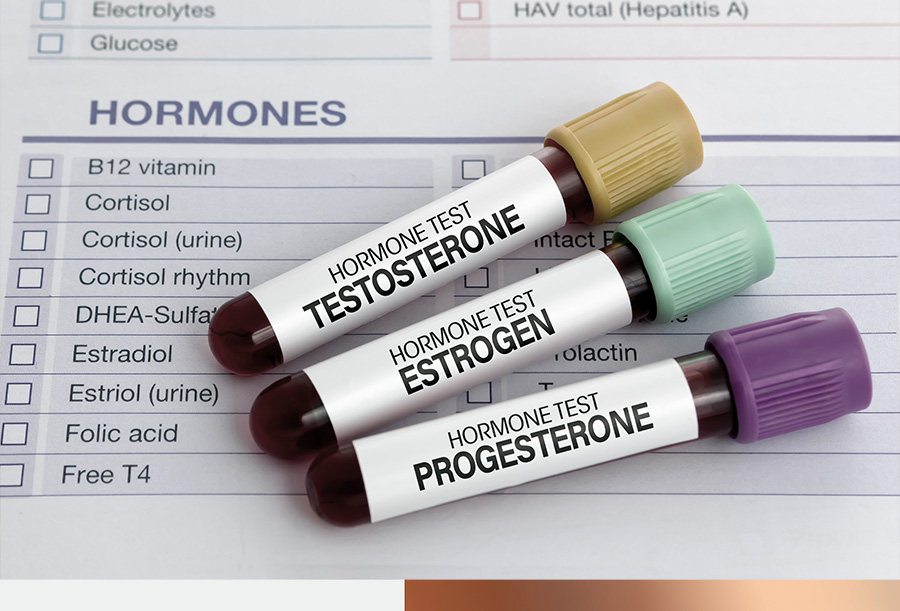Testosterone therapy, also known as testosterone replacement therapy (TRT), is a medically supervised treatment designed to restore testosterone levels in men experiencing hormonal imbalances. Testosterone is a key hormone responsible for energy, muscle mass, bone density, mood stability, and sexual health.

As men age, testosterone levels naturally decline, leading to a condition commonly referred to as “Low T.” Symptoms include fatigue, reduced libido, muscle weakness, and even depression. Testosterone therapy aims to replenish these hormone levels, helping men regain their vitality and improve their quality of life.
What happens in TRT?
TRT helps replenish testosterone levels, alleviating symptoms of deficiency and improving overall quality of life. Whether it’s restoring energy, rekindling intimacy, or building strength, testosterone therapy offers a comprehensive solution for men seeking to regain their vitality.
- Restores Hormonal Balance Alleviating the symptoms caused by low testosterone levels.
- Enhances Physical and Mental Well-being: Improving muscle mass, energy levels, cognitive function, and mood.
- Supports Long-term Health: Reducing the risk of osteoporosis and maintaining overall vitality.
How Testosterone Replacement Therapy Works
Testosterone therapy works by replenishing hormone levels to address deficiencies and restore balance within the body. Here’s how it functions medically:
Benefits of Using TRT

- Improved Energy Levels: Say goodbye to constant fatigue. TRT restores energy levels, helping you feel revitalized and ready to tackle your day with vigor.
- Increased Muscle Mass and Strength: Testosterone plays a crucial role in building and maintaining muscle. With TRT, you’ll notice enhanced muscle tone and strength, making your workouts more effective.
- Enhanced Libido and Sexual Performance: Low testosterone can impact your desire and performance in the bedroom. Testosterone therapy reignites intimacy by improving libido and sexual function.
- Sharper Mental Focus and Better Mood: Struggling with brain fog or mood swings? TRT supports cognitive clarity and emotional stability, helping you feel more focused and confident.
- Stronger Bones and Reduced Risk of Osteoporosis: By boosting bone density, TRT reduces the risk of fractures and supports overall physical resilience as you age.

Who Is Testosterone Replacement Therapy For?
Testosterone therapy is not just for anyone—it’s for men who want to reclaim their energy and well-being after experiencing the effects of low testosterone. Here’s who it’s designed for:
- Men Experiencing Symptoms of Low T
- Common signs include fatigue, reduced libido, muscle weakness, irritability, and difficulty concentrating.
- If these symptoms interfere with your daily life, TRT could be the solution.
- Those Diagnosed with Hypogonadism
- A condition where the body fails to produce sufficient testosterone. TRT directly addresses this deficiency.
- Men Over 30 with Declining Hormone Levels
- Testosterone levels naturally decline with age, often leading to symptoms that TRT can alleviate.
- Men Seeking Enhanced Physical and Mental Performance
- If you’ve noticed a dip in your energy, motivation, or workout results, TRT can provide the boost you need to feel your best.
How to Get Started with TRT
Embarking on your testosterone therapy journey is a straightforward process with professional guidance. Here’s how you can get started:
- Schedule a Consultation
- Begin by meeting with a qualified healthcare provider to discuss your symptoms, goals, and overall health.
- This initial conversation helps determine if testosterone therapy is right for you.
- Comprehensive Medical Evaluation
- Your provider will conduct a thorough health assessment, including blood tests, to measure your testosterone levels.
- This step ensures that the treatment is both safe and effective for your specific needs.
- Personalized Treatment Plan
- Based on your evaluation, a customized therapy plan will be developed, including the method of administration (e.g., injections, gels, or implants) and dosage schedule.
- Ongoing Monitoring
- Regular follow-ups will be scheduled to monitor your hormone levels, assess the effectiveness of the therapy, and make any necessary adjustments.
- Your provider will also track your progress and address any concerns along the way.









